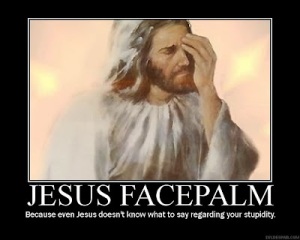 Atheists often treat Christians like hillbillies, incapable of intellect, reasoning skills, or logic. Is this a fair assessment of Christians, or have Christians been the leaders in producing intellectual discourse?
Atheists often treat Christians like hillbillies, incapable of intellect, reasoning skills, or logic. Is this a fair assessment of Christians, or have Christians been the leaders in producing intellectual discourse?
Last month I purchased a used library book entitled, The American Intellectual Tradition, A Sourcebook, Volume I:1630-1865, published by the Oxford University Press and edited by David A. Hollinger of UC-Berkeley and Charles Capper of UNC at Chapel Hill. It was only a quarter, and I’m always interested in learning, so I picked it up. A few days ago I finally got around to looking through it. I was interested to discover that nearly every writing came from a Christian. Here are some examples of authors and their writings that were included in the book:
John Winthrop: “A Model of Christian Charity”
Anne Hutchinson: “The Examination of Mrs. Anne Hutchinson at the Court at Newtown”
Roger Williams: “Christenings Make Not Christians”
Thomas Paine: Selection from “Common Sense”
Charles Finney: “What a Revival of Religion Is”
Sarah M. Grimke: Selection from “Letters on the Equality of the Sexes, and the Condition of Woman”
Frederick Douglass: “What to the Slave is the Fourth of July?”
These are just a few of the writings influenced by the Bible that were included in a long list. Also included are selections from the Founders: John Adams, Thomas Jefferson, Benjamin Franklin, etc . . , some of the transcendentalists such as Ralph Waldo Emerson and Henry David Thoreau, and several selections from Abraham Lincoln.
In the preface to the book, the authors argue that “most of the documents it contains are the result of someone’s effort to make an analysis and to persuade others of the correctness of that analysis.” They say they have been “drawn again and again to the work of men and women normally regarded as intellectual leaders: people who were relatively effective at making arguments.” They also explain that they chose the pieces they used because they “respond to issues that have persistently generated extensive intellectual discussion” and “concern the theoretical basis for religious, scientific, artistic, political, social, and economic practice.”
Atheists are actually being ignorant when they accuse Christians of being ignorant, because the greatest minds in the world, those who have contributed most to human rights, scientific advancements, educational opportunity, political freedom, and INTELLECTUAL ACHIEVEMENT have been those minds which were influenced by the Bible and the gospel of Jesus Christ.
Blessings,
Diana
Honestly, I would really like to converse with some of these people because I really respect them, as at least some of them were brilliant philosophers. Unfortunately, that doesn’t meant that all Christians today are. Some are. Creationists normally aren’t. But, if you can sleep better: There are enough moronic atheists, too. That’s human.
LikeLike
Atomic Mutant,
🙂 I agree. (Except with the part about creationist, since I am one.)
LikeLike
Although there is no doubt that brilliant men have been Christian, and that many brilliant discoveries, ideas and truths have been developed, analyzed and promoted by Christians, how do you clarify this:
“Atheists are actually being ignorant when they accuse Christians of being ignorant, because the greatest minds in the world, those who have contributed most to human rights, scientific advancements, educational opportunity, political freedom, and INTELLECTUAL ACHIEVEMENT have been those minds which were influenced by the Bible and the gospel of Jesus Christ”
Can you name specific people? My understanding is that brilliant minds have been born to all religions, and to all philosophical and ethnic backgrounds. How do you justify this statement of yours?
LikeLike
Most of the minds who had the greatest positive effects on humanity were Christians. Surely there have been brilliant minds across the world, but did they leave a lasting impact that blessed people by improving their political freedom, religious freedom, scientific understanding, medical advances, or even educational advances. Some names might be Galileo, Newton, Bacon, Locke, Boyle, Pasteur, Lister, Wilberforce, Douglass, Tubman, Garrison, Luther, Huss, Mackenzie, Knibb, Slessor, and on and on.
LikeLike